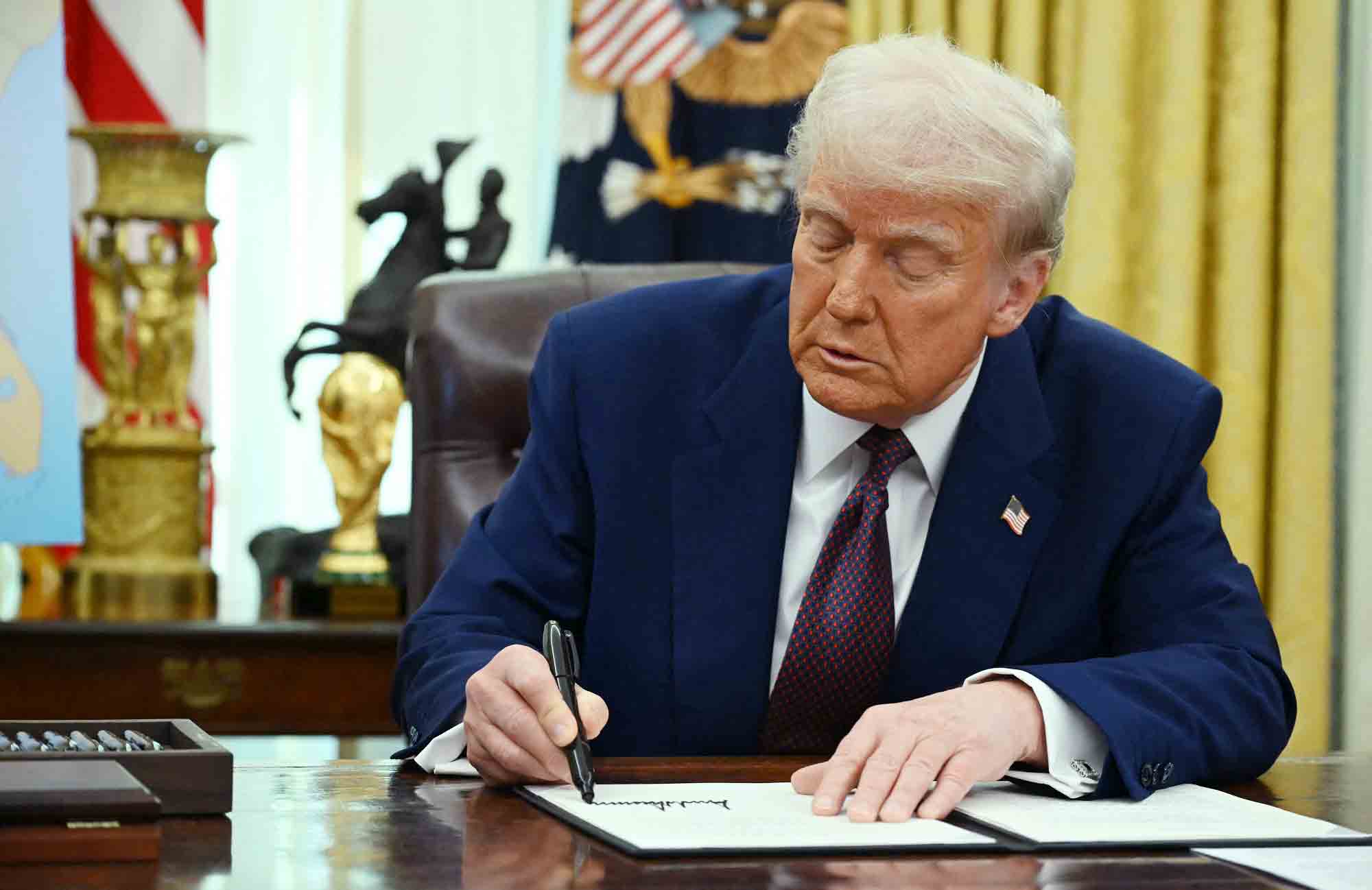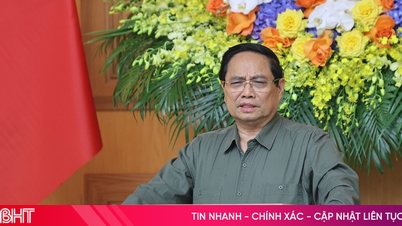Respond to allies
On February 13 (US time), President Donald Trump assigned his economic team to draw up a plan to impose reciprocal tariffs on all countries that tax US goods, increasing the risk of a global trade war with both US allies and rivals, according to Reuters.

US President Donald Trump signs an executive order on reciprocal tariffs at the White House on February 13.
"On trade, I have decided that in the interest of fairness, I will impose reciprocal tariffs, meaning any country that puts a tariff on the United States, we will put a tariff on them," Mr. Trump said in the Oval Office of the White House. He also said that America's allies are often "worse than our enemies" on trade, according to AFP.
Howard Lutnick, Trump's nominee for US Commerce Secretary, said studies on the plan to impose reciprocal tariffs will be completed by April 1 and Trump could begin imposing tariffs as early as April 2. In addition, a White House official revealed that Washington will first consider countries with the largest trade surpluses and the highest tariffs. The official added that the tariffs will be adjusted according to each US trading partner and consider the tariffs they apply to US goods.
Analysts say President Trump's plan to impose reciprocal tariffs could spark a flurry of tariff talks, but could also raise the risk of retaliation. They warn that Trump's new plan could lead to widespread tariff increases on emerging market economies such as India and Thailand, which tend to impose higher effective tariffs on US products.
US reaches agreement with India
President Trump signed the order on the reciprocal tariffs hours before holding talks with Indian Prime Minister Narendra Modi at the White House. Speaking alongside Mr. Modi at a joint press conference after the talks, Mr. Trump called India's "unfair tariffs" a "big problem," but said the two countries had reached a deal that included India importing more oil and gas from the United States to narrow the bilateral trade deficit, according to AFP.
Prime Minister Modi said the two countries would work on a “mutually beneficial trade agreement” focusing on oil and gas. According to a joint statement after the talks, Washington welcomed New Delhi’s recent moves to lower tariffs on some US products and increase market access for US agricultural products. The two sides will seek to negotiate a trade agreement by the fall of 2025, according to the joint statement.
Also at the press conference, Mr. Trump announced that starting this year, the US will increase arms sales to India by several billion dollars, and then provide the country with F-35 stealth fighters, according to Reuters. India has agreed to buy more than $20 billion in defense products from the US since 2008. New Delhi is expected to spend more than $200 billion over the next decade to modernize the Indian military, according to the US Congressional Research Service.
Also at the White House yesterday, President Trump said the 75-day suspension of the ban on short video sharing app TikTok in the US could be extended. On the same day, TikTok was returned to Apple and Google app stores in the US after Mr. Trump assured technology corporations that they would not be fined for distributing or maintaining the app, according to Reuters.
Mr. Trump and billionaire Musk were sued by 14 states
The Hill newspaper reported on February 13 that 14 US states have filed a lawsuit against President Trump and billionaire Elon Musk, claiming that Mr. Musk's efforts to cut government spending are unconstitutional. The group of 14 states, led by New Mexico, alleges that Mr. Musk's leadership of the Office of Government Efficiency (DOGE) violates the US Constitution's appointment clause, when he has not been approved by the Senate.
The states that filed the lawsuit argue that no other body with such broad executive power has been vested in an unelected and unconfirmed individual. They are asking the court to bar Mr. Musk and the DOGE team from making changes to public funding, government contracting, personnel and regulatory matters, and access to data systems.
Source: https://thanhnien.vn/ke-hoach-ap-thue-dap-tra-cua-ong-trump-185250214213726083.htm



![[Photo] Panorama of the cable-stayed bridge, the final bottleneck of the Ben Luc-Long Thanh expressway](https://vphoto.vietnam.vn/thumb/1200x675/vietnam/resource/IMAGE/2025/9/30/391fdf21025541d6b2f092e49a17243f)
![[Photo] President Luong Cuong receives President of the Cuban National Assembly Esteban Lazo Hernandez](https://vphoto.vietnam.vn/thumb/1200x675/vietnam/resource/IMAGE/2025/9/30/4d38932911c24f6ea1936252bd5427fa)
![[Photo] The 1st Congress of Phu Tho Provincial Party Committee, term 2025-2030](https://vphoto.vietnam.vn/thumb/1200x675/vietnam/resource/IMAGE/2025/9/30/1507da06216649bba8a1ce6251816820)
![[Photo] Solemn opening of the 12th Military Party Congress for the 2025-2030 term](https://vphoto.vietnam.vn/thumb/1200x675/vietnam/resource/IMAGE/2025/9/30/2cd383b3130d41a1a4b5ace0d5eb989d)
![[Photo] General Secretary To Lam, Secretary of the Central Military Commission attends the 12th Party Congress of the Army](https://vphoto.vietnam.vn/thumb/1200x675/vietnam/resource/IMAGE/2025/9/30/9b63aaa37ddb472ead84e3870a8ae825)
































































































Comment (0)